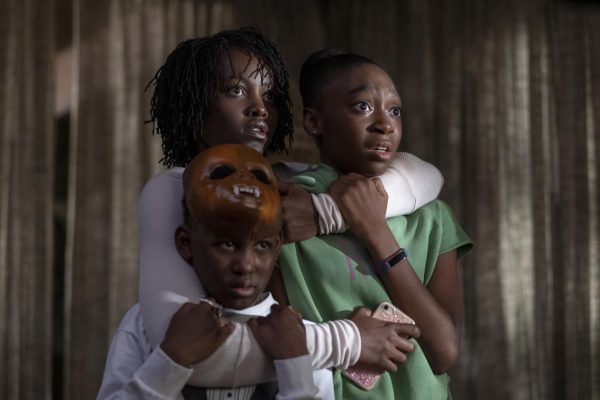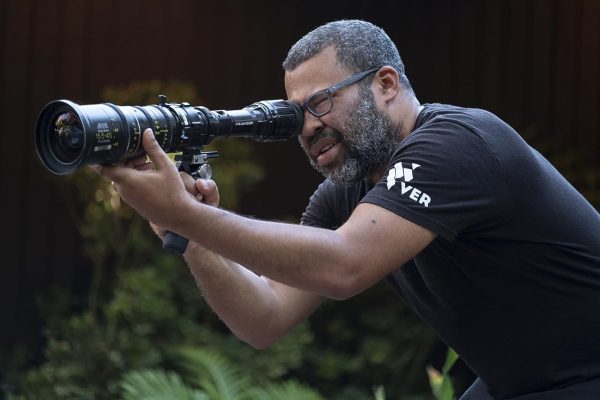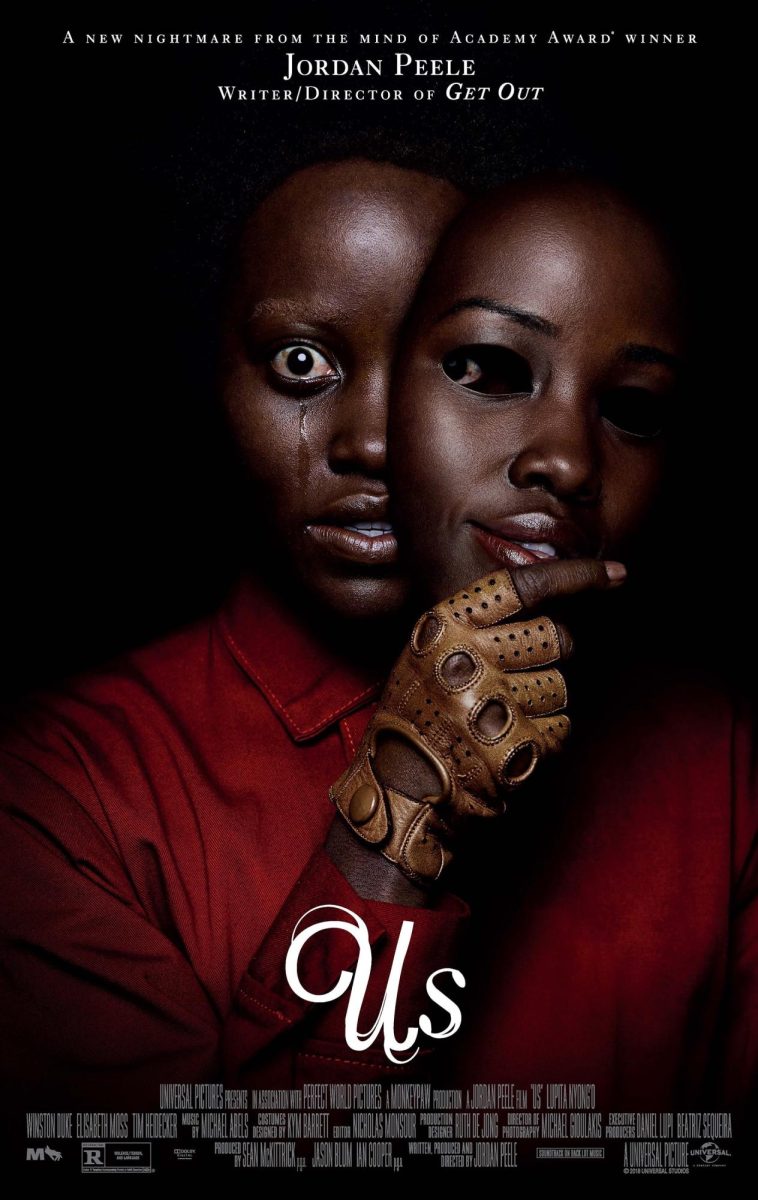“Us,” released March 8, 2019, is a psychological horror movie directed by Jordan Peele. The film follows Adelaide Wilson (Lupita Nyong’o) and her family, who are attacked by a group of menacing doppelgängers, the Tethered.
“Us” is Peele’s second movie, releasing two years after “Get Out.” In honor of its fifth anniversary and Black History Month, I found it only right to spotlight this instant classic thriller.
Parents Adelaide and Gabe (Winston Duke) take their kids (Shahadi Wright Joseph and Evan Alex) for a typical summer getaway. The mother, who is dealing with some unresolved trauma, cannot shake the anxiety that something horrible is going to happen to her family. After a high-stress beach day, when the enduring all-American family returns to their beach house, they are pitted against the most sinister and uncanny opponent: their own doppelgängers.
This film is jam-packed with seemingly hidden images. It’s one of those films where you find something new every time you see it, which I like. Despite all these small hints and details, the viewer isn’t lost at any point in the movie. In fact, it’s even more rewarding when you find one of these images the first time around.
My favorite reference in the film is a Christian Bible Verse, Jeremiah 11:11. “Therefore this is what the Lord says: ‘I will bring on them a disaster they cannot escape. Although they cry out to me, I will not listen to them.’” This is such a cryptic and haunting quote in the context of the film. It makes the family’s fate seem inevitable when we, as the viewers, are hoping it is not. I won’t give away the ending because I really want others to go and watch it, but this verse serves as an incredible image that shows the dedication and precision of Peele.

Speaking of Peele, he is one of, if not my favorite, directors of this generation. As a horror fan, I relate to the inspirations Peele so candidly speaks about, such as “The Shining,” and knowing this inspiration makes the viewing experience so interesting, especially with the resemblance in the cinematography and the images of distress and mental illness. While some took issue with this inspiration, I find it innovative and makes the work feel like a classic.
Another part of Peele’s directing I find stellar is his ability to make the doppelgängers feel like completely different people. That was not just his doing, as the casting for this movie had to be one of the best castings I’ve seen.

As a first-time watcher, I felt so immersed, and not once did I think about the fact that they were the same people. It takes a certain kind of talent to play two roles that are basically the same person and make one compassion-worthy and the other utterly terrifying.
“Us” is a suspenseful and modern masterpiece, especially in its overarching theme of America’s dark past. This is especially present from an ambiguous ending, representative of the fact that despite thinking these atrocities are still in the past, they always come back, and they always look like us.







